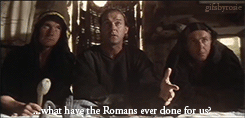The youngest son of King Uthric of Gettland, Yarvi was always meant for a life as a minister. Destiny, however, has other plans and when his father and older brother meet their untimely deaths, Yarvi is called to the Black Chair.
Not a popular king – as well as his youth, Yarvi faces prejudice due to his half-formed left hand – one of Yarvi’s first lessons in kingship is in how hard it is to hang on to your throne. Especially when even those closest to you can’t be trusted. And so starts a quest for vengeance that sees Yarvi travel strange lands, in the company of strange companions, learning that you don’t have to be a fighter to be dangerous.
Clearly written for a slightly younger audience than his usual, Half A King is still recognisably Abercombie (if a little less bleak...but only a little) – a proper page-turner with plenty of banter, betrayals and blood, brilliant characters that are full of personality, desperate situations, deep friendships, and a main character that isn’t a perfect white knight but a flawed human being who makes mistakes and doesn’t always learn from them. For me, however, Yarvi wasn’t the star of this book. That honour goes to Nothing, who’s the sort of character that Abercrombie excels in creating and who wouldn’t be out of place amongst his Northmen (I reckon he could have been great mates with my old favourite, Cracknut Whirrun).
Having torn through this in two sittings (thank you, Joe, for helping me get my reading mojo back!), I’m now straight on to the next.






